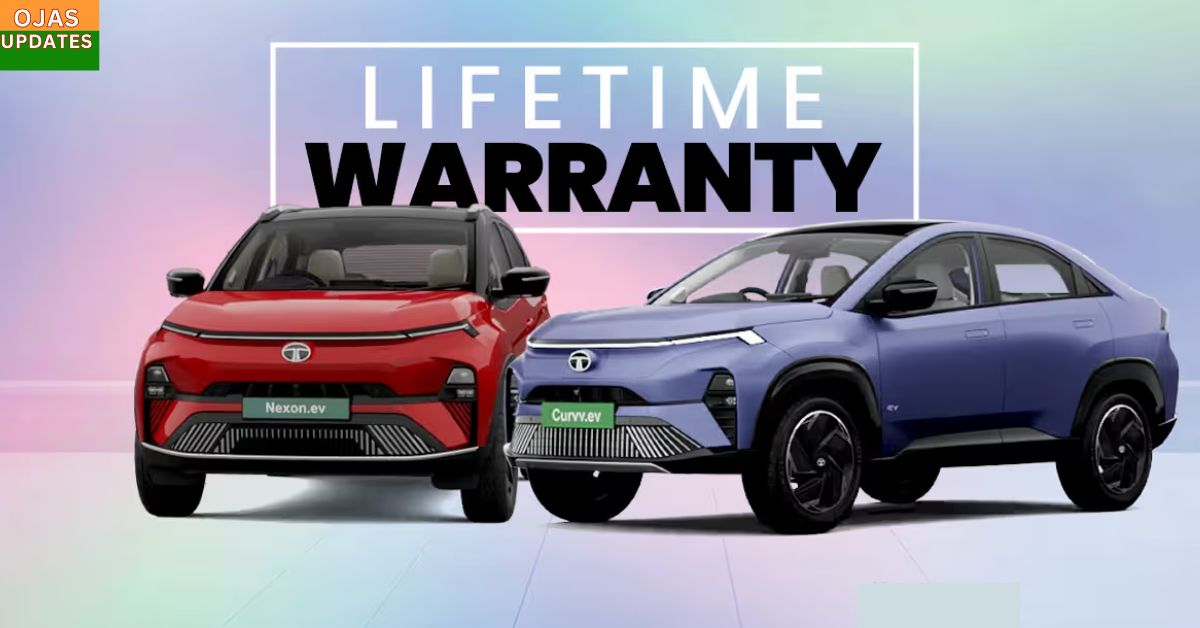In a bold move that’s set to reshape the electric vehicle (EV) landscape in India, Tata Motors has extended a Lifetime High‑Voltage (HV) Battery Warranty to its popular Nexon EV 45 kWh (and Curvv.ev) models—offering 15 years of unlimited battery coverage for first-time private individual owners. This landmark initiative promises to erase one of the biggest hurdles in EV adoption—battery longevity anxiety—and revolutionize the cost-value equation for electric mobility.
What Does “Lifetime” Really Mean?
Tata Motors defines this “lifetime” warranty as 15 years from the vehicle’s first registration date at the RTO—a period traditionally aligned with the vehicle’s legal lifespan in India. During this time, the battery pack enjoys unlimited kilometres of coverage.
This warranty applies to both new buyers and existing first-time owners of the Nexon EV 45 kWh and Curvv.ev—ensuring that even early adopters can benefit from this assurance.
Why This Matters: Breaking Barrier to EV Adoption
1. Eliminating Battery Replacement Anxiety
EV battery replacements can cost several lakhs—Tata estimates savings of around ₹8–9 lakh over 10 years in running costs alone, even before factoring in battery expenses. This lifetime warranty removes a major source of hesitation among prospective buyers.
2. Boosting Resale Value
Even if the warranty doesn’t transfer to second owners, the assured first‑owner battery coverage elevates resale value. Buyers know they’re investing in a vehicle whose most expensive component is secured for the long haul.
3. Cementing Trust in Tata’s EV Technology
First introduced with the Harrier.ev, the warranty reflects Tata’s growing confidence in its battery technology and quality control.
Who Qualifies—and What Are the Conditions?
- Eligibility: Only first-time private individual owners (new or existing) of the Nexon EV 45 kWh (and Curvv.ev) are eligible. Corporate or commercial registrations are excluded.
- Post First Ownership: On transfer, coverage drops to a standard 8-year or 1.6 lakh km warranty for subsequent owners.
- Maintenance Musts:
- Servicing strictly at authorized TATA.ev service centers, following the prescribed schedule.
- An active IRA.ev connection must be maintained continuously.
- Any tampering, commercial use, or unauthorized modifications void the warranty.
- Battery Health Requirement: If the battery needs repair or replacement, Tata ensures the replacement meets at least 80% of the original State of Health (SOH) capacity.
What Tata Says: The Official Rationale
Tata Passenger Electric Mobility Ltd.’s CCO, Vivek Srivatsa, notes:
“By democratizing premium EV technology … one of the key factors behind this growth is the ability to instil confidence amongst customers for a worry‑free ownership experience.”
Indeed, it’s a move designed not just to reassure owners, but to send a powerful signal across the EV market: long-term ownership of an electric vehicle can be genuinely worry-free.
Real‑World Perspective: What EV Enthusiasts Are Saying
EV owners have long voiced battery-related concerns. One recent owner reflected:
“The thought of having to replace the expensive batteries in 10 years or so …”
Tata’s lifetime warranty squarely addresses this, fundamentally shifting perceptions around long-term EV costs.
Final Thoughts: What This Means for EV Buyers
- Unparalleled Peace of Mind: 15 years of worry-free battery life is almost unheard of in any automotive segment, especially among EVs.
- Powerful Resale Advantage: Even though coverage doesn’t carry over, assured battery health for a decade-plus boosts listed price and buyer confidence.
- Tata’s EV Leadership: By setting a new industry standard for after-sales assurance, Tata Motors strengthens its leadership in the Indian EV market.
- Encouraging EV Adoption: With such robust warranty support, even range-anxious drivers and long-term planners might now take the electric leap.
Final Word
Tata Motors’ lifetime HV battery warranty for the Nexon EV 45 kWh is more than a customer perk—it’s a strategic leap toward making EVs mainstream in India. By addressing the biggest consumer fear—battery reliability and replacement cost—it provides a compelling argument to choose electric now.

